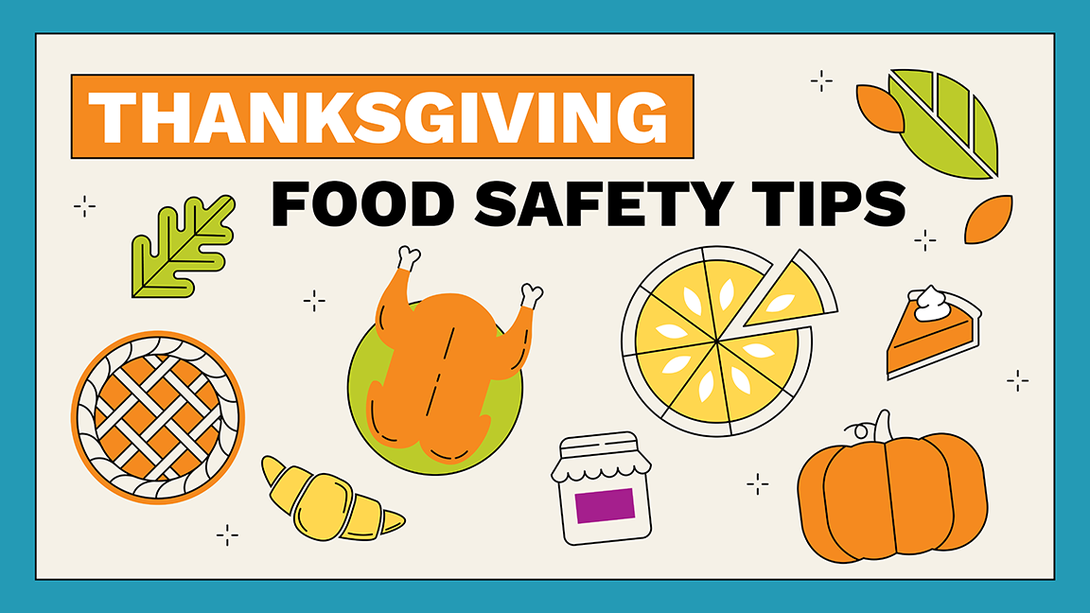News — Hannah Guenther, rural health Extension educator, offered some advice to set yourself up for a successful Thanksgiving meal, from the preceding days through when all the guests have gone home.
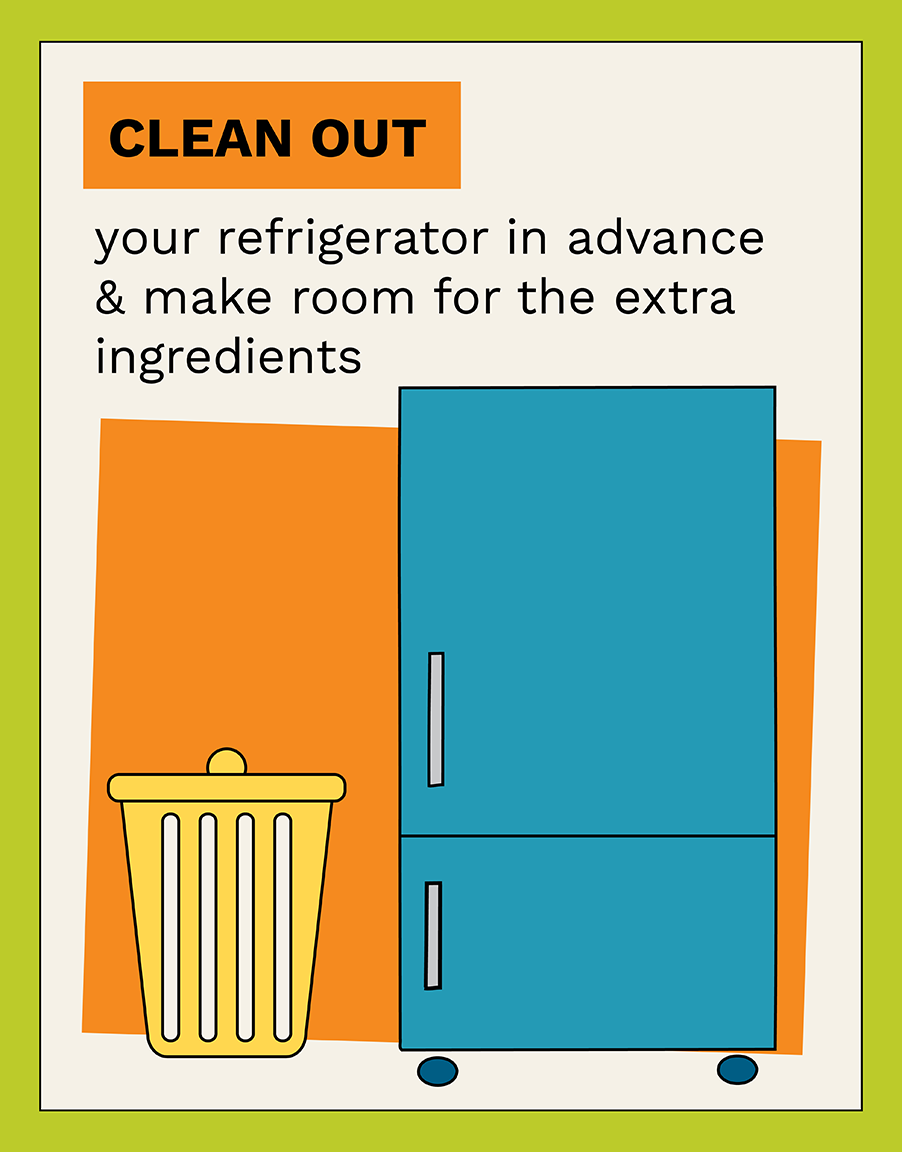
Kristen Labadie | University Communication and Marketing
Clean out your refrigerator to make room for your ingredients.
In the days leading up to Thanksgiving, clean out your refrigerator and freezer to free up space for ingredients and leftovers. Make sure you have enough space to thaw proteins in advance, store items prior to serving and store leftovers once the meal is over. Food stored in the refrigerator needs to reach 40 degrees or less to prevent growth of bacteria.
“If the refrigerator is overly crowded, food can’t cool down as quickly as it needs to,” Guenther said.
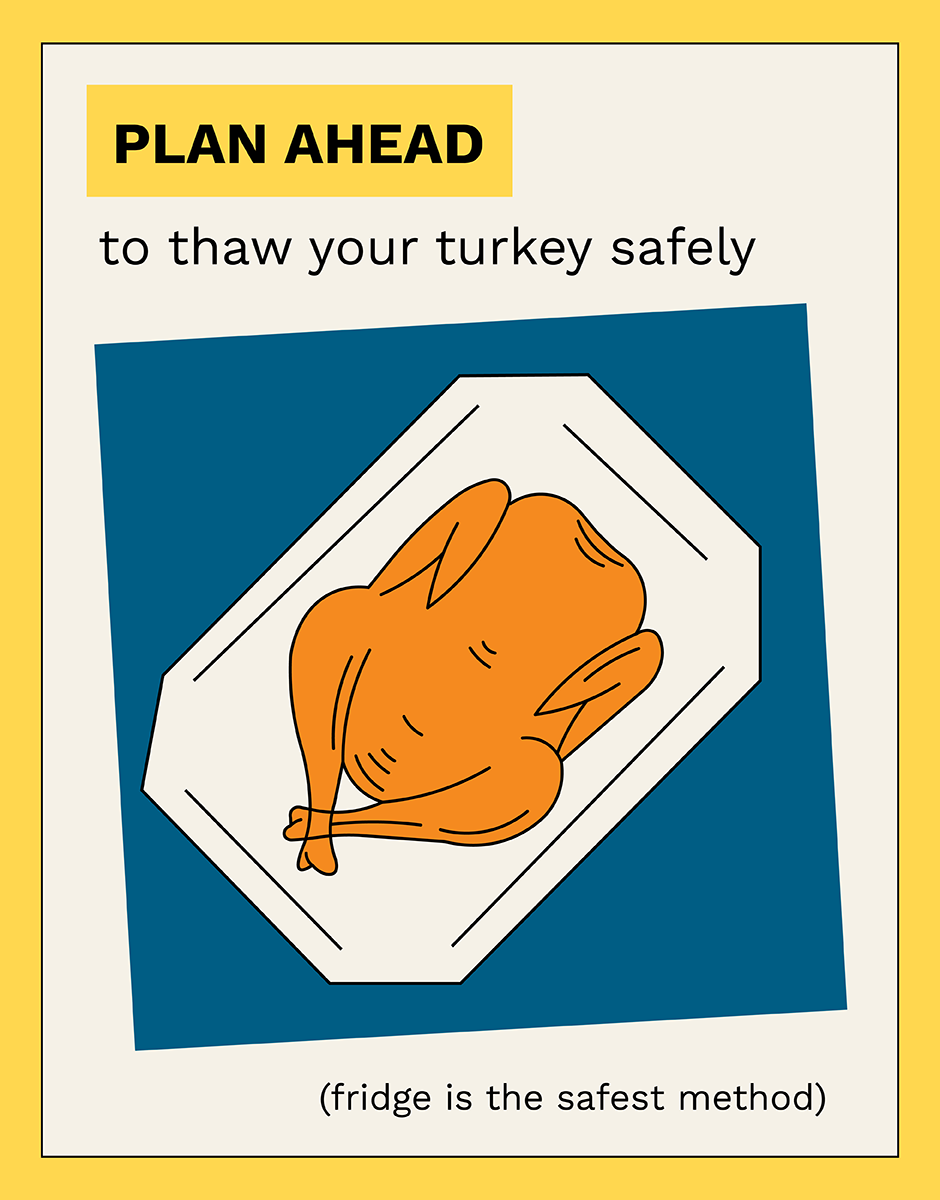
Kristen Labadie | University Communication and Marketing
Plan ahead to thaw your turkey safely.
Start thawing your turkey early enough to ensure it thaws completely. The preferred, safest method is to put it in the refrigerator, Guenther said. This can take one to three days for a 4- to 12-pound turkey, and even longer the larger the turkey is. Thawing all the way through is crucial to getting a consistent cook to 165 degrees throughout the entire turkey.
“If the inside is frozen and the outside’s not, you’re going to be temping the outside thinking it’s completely done when that inside won’t be able to reach that proper temperature,” Guenther said.
Cook turkey to a minimum of 165 degrees. If you cook stuffing inside the turkey, the stuffing also must reach 165 degrees.
If you’ve run out of time to thaw your poultry in the refrigerator, a faster but still safe method is to submerge it completely in cold water. Replace the water every 30 minutes when using this method.
Guenther does not recommend thawing in a microwave because it can thaw the turkey inconsistently, leaving some spots still frozen while other areas start to cook.

Kristen Labadie | University Communication and Marketing
Do not wash your turkey.
One of Guenther’s most important tips, she said, is that you should never wash your poultry. There is no need to wash raw protein before cooking, and Guenther said it actually does more harm than good.
Washing can increase the risk of cross-contamination because of the water itself.
“That water is going to splash out and it can get onto your countertops, your dishrags, your soap,” she said. “All you’re doing is spreading germs instead of getting rid of them.”
Once it’s thawed, a turkey is ready to season and cook.
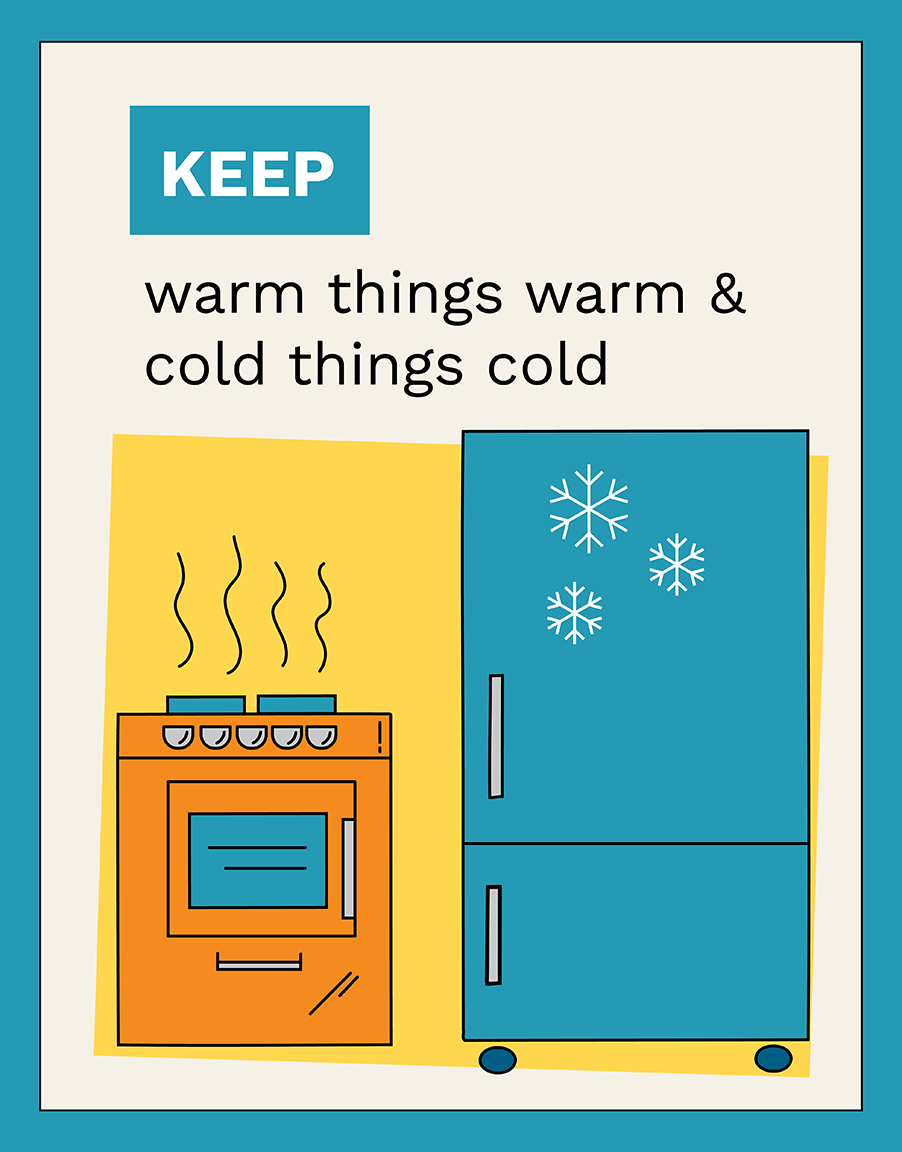
Kristen Labadie | University Communication and Marketing
Keep warm things warm and cold things cold.
Hot food should be kept above 140 degrees, and cold food should be kept below 40 degrees. If you’re not hosting, use a warming tray, foil or slow cooker to maintain the appropriate temperature.
Don’t leave food out at room temperature for more than two hours, Guenther said. This can be a challenge on holidays like Thanksgiving when people are more likely to be grazing for long periods of time, but it is important to preventing growth of bacteria or foodborne illness.
“Once you’re done with one course, put it away,” Guenther said. “Before it’s time for dessert, put away all of your leftovers.”
Guenther also emphasized the importance of washing your hands during preparation and before and after the meal.
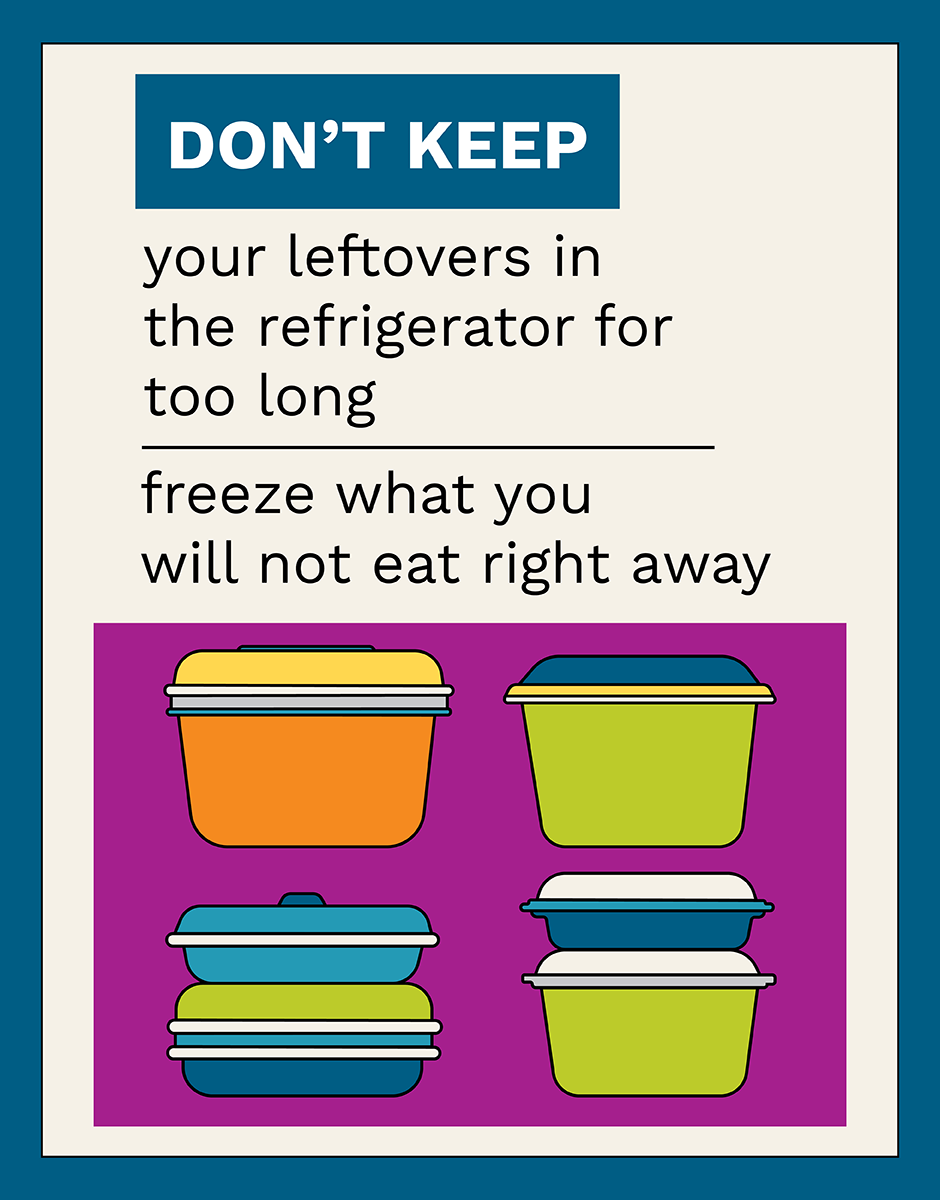
Kristen Labadie | University Communication and Marketing
Don’t store your leftovers in the refrigerator for too long. Freeze what you will not eat right away.
It depends on the food, but most leftovers can be kept in the refrigerator for three to four days. If you are concerned you have more than you will be able to eat in that window of time, put it in the freezer. Food kept in the freezer can last for two to six months. When reheating, make sure the food reaches 165 degrees.
“Be realistic about how much fridge space you truly have and what you can feasibly eat,” Guenther said. “Put everything else in the freezer and then you can enjoy it later on.”

